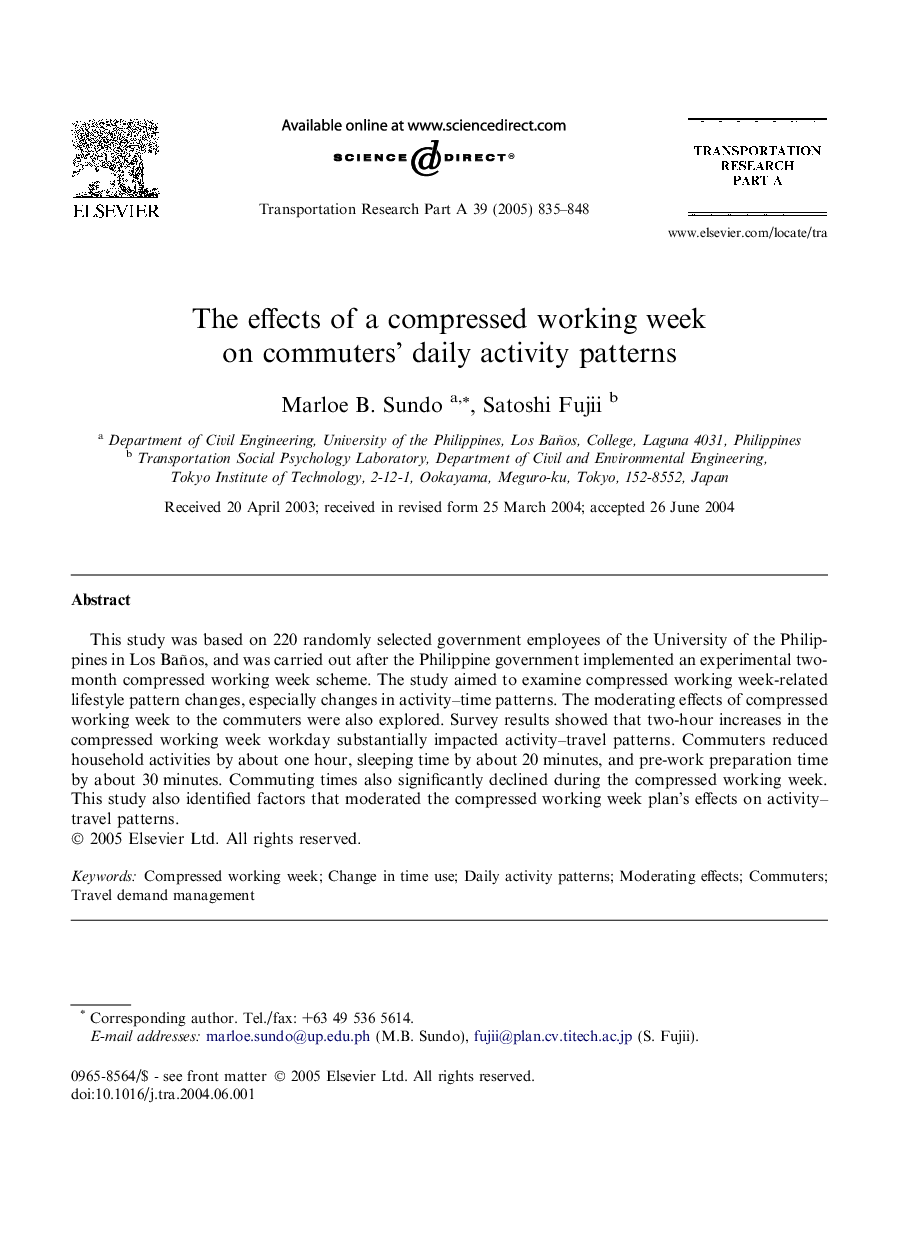| Article ID | Journal | Published Year | Pages | File Type |
|---|---|---|---|---|
| 10296358 | Transportation Research Part A: Policy and Practice | 2005 | 14 Pages |
Abstract
This study was based on 220 randomly selected government employees of the University of the Philippines in Los Baños, and was carried out after the Philippine government implemented an experimental two-month compressed working week scheme. The study aimed to examine compressed working week-related lifestyle pattern changes, especially changes in activity-time patterns. The moderating effects of compressed working week to the commuters were also explored. Survey results showed that two-hour increases in the compressed working week workday substantially impacted activity-travel patterns. Commuters reduced household activities by about one hour, sleeping time by about 20Â minutes, and pre-work preparation time by about 30Â minutes. Commuting times also significantly declined during the compressed working week. This study also identified factors that moderated the compressed working week plan's effects on activity-travel patterns.
Related Topics
Physical Sciences and Engineering
Engineering
Civil and Structural Engineering
Authors
Marloe B. Sundo, Satoshi Fujii,
